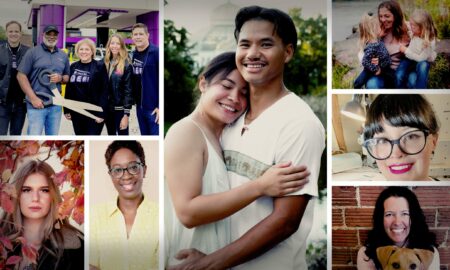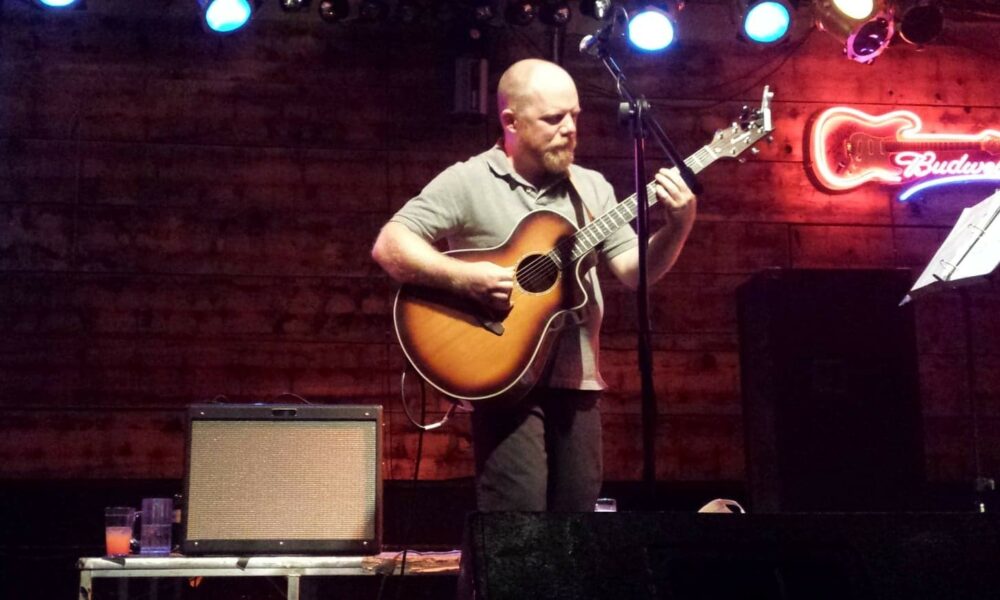

Today we’d like to introduce you to Ocho.
Hi Ocho, can you start by introducing yourself? We’d love to learn more about how you got to where you are today?
I grew up in the ’90s in Pierre, SD. My first gig was in a thrash/punk band. I sang for that project, and wrote lyrics about bringing justice to the world. We ended up creating a music scene as an outlet for our creativity. We put on shows by ourselves; our first show ended up attracting over a hundred people, which was incredibly promising. That was about a quarter of the people in our school. The excitement eventually died down, but our little community still became a haven for a lot of kids who weren’t fulfilled by the conventional outlets of academics and sports.
My musical interests have always been diverse and far-reaching. While I was playing punk rock, I was also performing musical theatre at school. On my own, I was practicing guitar and drums. I taught myself to program music and to engineer audio recordings. I started out by recording with my band, and have never really stopped; I always have a few recording projects going on, whether it’s for myself or someone else.
When I struck out on my own, I moved to uptown Minneapolis. I was writing eclectic rock music on the guitar, and programming bass, drums, and other parts. I was writing lyrics and singing, too. I was also teaching myself to rap, because I was singing along with the gangsta rap records of the day, which I found to be very impressive. I drifted in and out of a few different bands, mostly as a vocalist. I learned an incredible amount from everyone I worked with, and made some lasting friendships.
Encouraged by the work of an old friend, I started writing acoustic music. I appreciated the simplicity of putting chords, melodies and lyrics together. And honestly, it was helpful to rein in my ambition somewhat, and focus on fundamentals. I had been trying to integrate a dozen different styles into my compositions, without understanding much about the basics. I have grown a lot, but I still delight in the basics: When I teach lessons, I point out that the new things we learn are almost always just specific interpretations of the old things.
I moved an hour south of the city to Mankato for college, and thrived in the college-town atmosphere. My dad encouraged me to study something practical (i.e. outside of the arts), and psychology was the most practical thing that held my interest, so that became my major. I was devoted to my studies, but music was always my creative and social outlet.
I got my first gigs at coffee shops and bars, at the college, and at local festivals. I was playing songs I had written, and developing my voice as a writer. While I studied for a career in psychology, I minored in creative writing, and took electives in music whenever I could. The music program was very inclusive; you didn’t have to be a music major to take classes. I took intro classes in theory, voice, and music history.
Creative nonfiction and poetry classes gave me an upgrade, improving my writing instantly. The education was just what I needed. I became known for my lyrics, as well as for my fun-loving attitude on stage. I was still writing about social justice, as well as some other heavy topics such as emotional honesty and communication. But I usually had a satirical or ironic way of getting the ideas out, which made them more digestible. Sometimes lyrics took the form of science fiction, or of a character sketch. I wrote a lot about personal disasters in a comical kind of a way. I still do that.
In college, I hosted an open mic and found that I was a natural at emceeing and putting on events. I also recorded my first two solo albums on my own. To date, I have written, produced and released 11 original albums.
After earning my B.S. in psychology, I moved to southern Oregon for my Master’s degree. I was in a new part of the country, and I was happy to be playing new venues while in grad school. I picked up another job hosting an open mic. My academic program focused on a lot of self-exploration in addition to learning the technical skills of being a mental health counselor, so everyone in my cohort got individual therapy as part of our coursework. We also practiced our therapeutic skills on each other. I learned a lot about myself in therapy, the most relevant fact being that a career in psychology had always subconsciously been my Plan B, and that entertaining people was more fulfilling and more important to me.
With this new revelation, I sold most of my belongings, bought a van, and went out on tour playing acoustic music (after getting my degree). I didn’t have any financial backing, so I took out an additional student loan during my last week of school (I wouldn’t recommend it, but it worked out ok). For two years, I lived on the road, booking and playing shows across the U.S. and Canada. By day, I would scout venues online and book shows. By night, I would sleep in my van or on someone’s couch. I was playing two or three shows per week.
After two years, the arrangement was becoming unsustainable. It was fun—promising, even—but it wasn’t paying the bills. I was running out of money and therefore out of options. If I was going to move forward in my life and my career, I had to settle down somewhere. My hometown offered nothing along those lines. The big cities I had visited could offer a lot, but, between congestion and high cost of living, they didn’t agree with me as places to live.
Mankato, on the other hand, had potential. It had a strong network of caring, honest people who supported the arts. It had some venues I liked to play, and it had some of my best friends. One of these friends was kind enough to put me up in his house until I got on my feet again. This was a godsend, because I was broke, my credit was maxed out, and I didn’t have a job.
I worked as a part-time counselor and a part-time entertainer. I was finished with the starving artist life. I decided I wasn’t going to do anything that didn’t turn a profit. I wasn’t picky about what I did; if something was paying, and I enjoyed it, I would do that thing. I kept playing acoustic gigs. I joined and formed many bands, playing rock, dance, Americana, and metal. I rap, and produced my own beats. At one time, I was in 11 different gigging bands. As all this was growing, I gradually took less work at the counseling agency. It took about two years before I could officially quit my day job.
And it was still growing. People saw what I was doing and offered me more work. I began promoting shows. I started hosting open mic and karaoke, putting on shows for local artists, and running sound for bands. I started recording for hire in my home studio. I began teaching private lessons to students. I also mentored students in the music industry program at my alma mater. People liked me as a DJ, so I started getting hired for wedding receptions. People liked me on stage, so I started getting hired to officiate weddings. My stage banter also led to me performing stand-up comedy occasionally. Generally, if someone offered me work, I would say yes. It didn’t really matter if it was new to me. As long as I was pretty sure I could figure it out.
If all of this sounds like a lot of work, it is. It’s easier now that I’m more established as a business. I don’t have to reach out as much. These days, people usually get in contact with me, rather than the other way around. On the other hand, though, I think I will always have to do some cold-calling because venues close, bands break up (A LOT), students move on, etc. Still, it helps to have a solid reputation in the community. I would not exist as I am without the people around me. I would not do what I do without them.
Can you talk to us a bit about the challenges and lessons you’ve learned along the way. Looking back would you say it’s been easy or smooth in retrospect?
I always tell people that it’s a piece of cake. That’s the simplest answer, and it’s true: I love to make parties happen. I get to do that, and get paid for it. I feel incredibly fortunate.
So I would say that the road has been smooth, yes. It has not been direct. I’ve had to try a few different paths to get where I am. Like I said, I’ve been flat broke and depended on people’s kindness to get back up again. Even now, in the course of a year, I pull out every trick I know in order to make a living. And the landscape always changes, so I have to adapt to what I’m doing. That might sound like a struggle, but for me, it’s not. It’s just an activity. I LIKE using all my skills. I’m as busy as I want to be, and I’m at a comfortable level of challenge.
If I were doing all of this and it wasn’t working, then it would be a struggle. But it works great. I used to take almost every gig I was offered. Now, I probably turn down as much work as I accept.
Appreciate you sharing that. What else should we know about what you do?
The first thing is, I daydream a lot. I’m known as a busy person, but most of my work doesn’t come about from grinding. When I’m on stage, I want to project something that flows and that feels right, so the process of creating it should come easy as well.
Probably the most valuable guideline that I follow is to indulge every piece of inspiration that I get. If I wake up with a melody in my head, I record it or write it down. If I think of a good line, I scribble it down, even if it’s just on a scrap of paper that I never see again. The ideas keep coming if I listen to them, honor them. If I ignore them, they stop showing up. So I’m not so critical about what makes a “good” idea.
A lot of people use the word “playful” to describe my work. It might be because of this process, or it might be because I have a playful nature that I like to express.
I’m most proud of the fact that I’ve been able to make a decent living as an entertainer for 12 years. I am self-employed and I only take the work I want to take. I set my own schedule. I’m incredibly happy that I get to do my own thing.
There’s an expectation that entertainers are trying to be a part of something big, but that’s not me. I like serving this region. I like being my own boss. I don’t care much if I get a million followers or make a million bucks. I wouldn’t turn it down, but it’s far more important for me to do creative work on my own terms. It’s easier to do that when I keep my life simple. I think if I was a celebrity, I would have more demands on my work and on my time. That life seems like a trap. I do not want it; I’m pretty sure it doesn’t want me, either.
Networking and finding a mentor can have such a positive impact on one’s life and career. Any advice?
I wouldn’t advise anyone to follow in my footsteps. Walking my own path has had great results, but that’s only because I’m me and I found my own way.
It seems to me that there really isn’t a right or wrong way. Over the years, I’ve heard and seen a lot of formulaic advice e.g. “here’s how to build a social media following,” “here’s who you need to meet and how to meet them.” I tend to think of that stuff as a waste of my time. I learn kinesthetically, by doing things, so I have generally just put myself out there and made mistakes and kept trying. I will probably always do it that way. I am happy with how it has turned out, but I wouldn’t necessarily recommend doing things this way, unless you are the same type of person I am. I like to reinvent the wheel.
Even if you don’t like to reinvent the wheel, you will undoubtedly encounter some experiential learning along your path. My advice is to monitor your own happiness. If something seems like it will make you miserable, that should raise serious doubts within you. Do you really have to do it that way? Maybe there’s an alternative. It’s ok to be skeptical of conventional and popular methods. You’re an artist, for crying out loud. If your work is creative, your networking strategy can also be creative. Your networking strategy can inspire you just as much as your work.
The other side of the coin is, you will need to compromise. When you do something in a unique way, it’s an experiment. You need to monitor the results. If it isn’t working, you need to try something different.
Contact Info:
- Email: [email protected]
- Website: ko-fi.com/ocho
- Instagram: https://www.instagram.com/ochomeans8/
- Facebook: https://www.facebook.com/ochotunes
- Twitter: https://twitter.com/ochomeans8
- Youtube: https://www.youtube.com/user/ochotunes
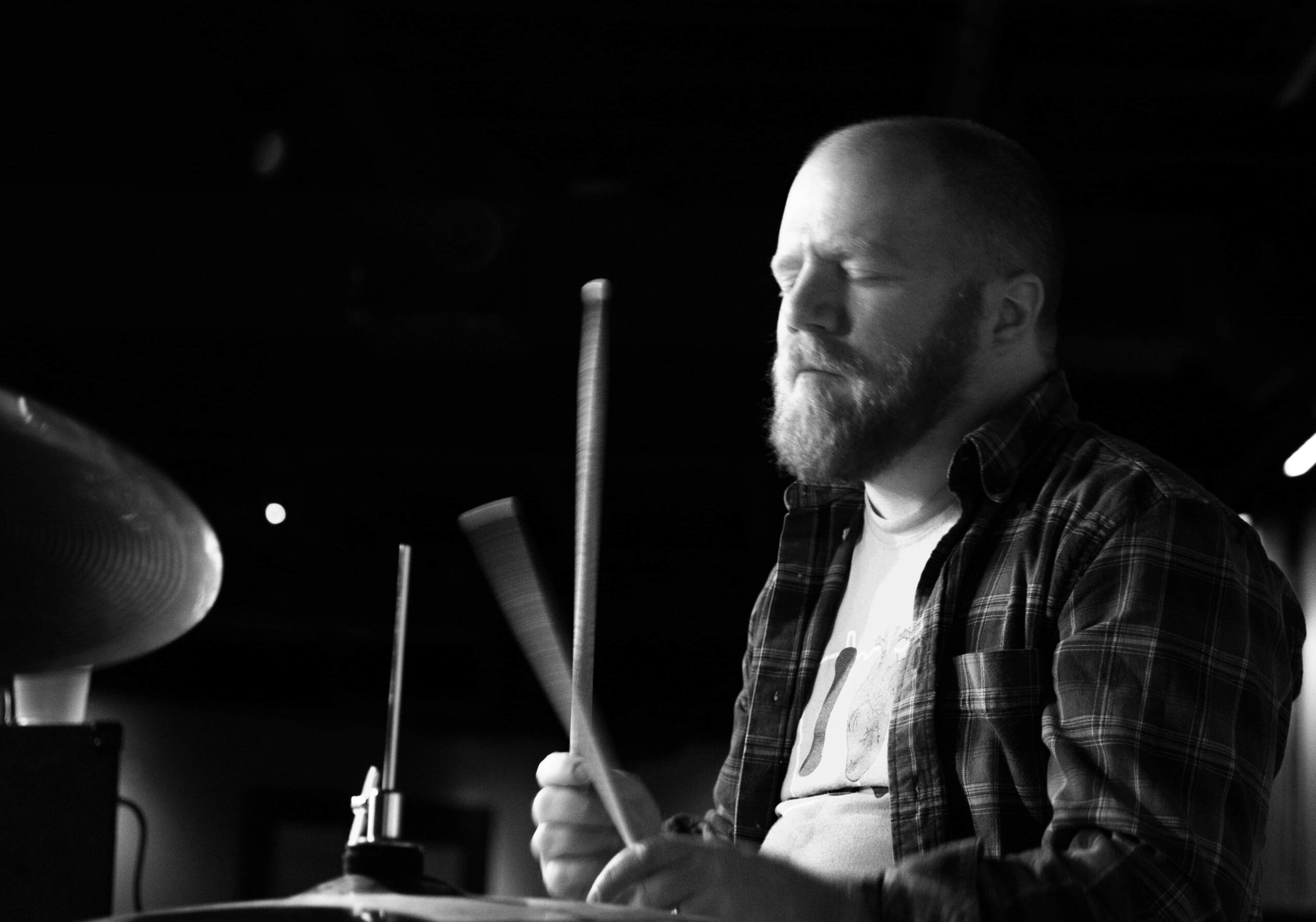
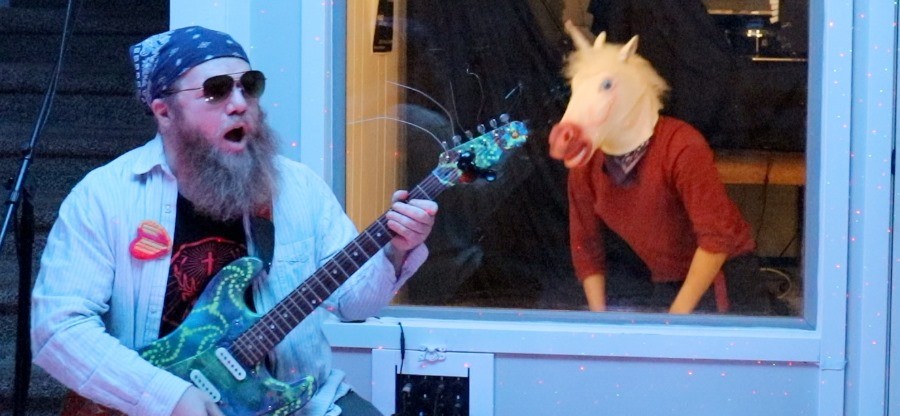
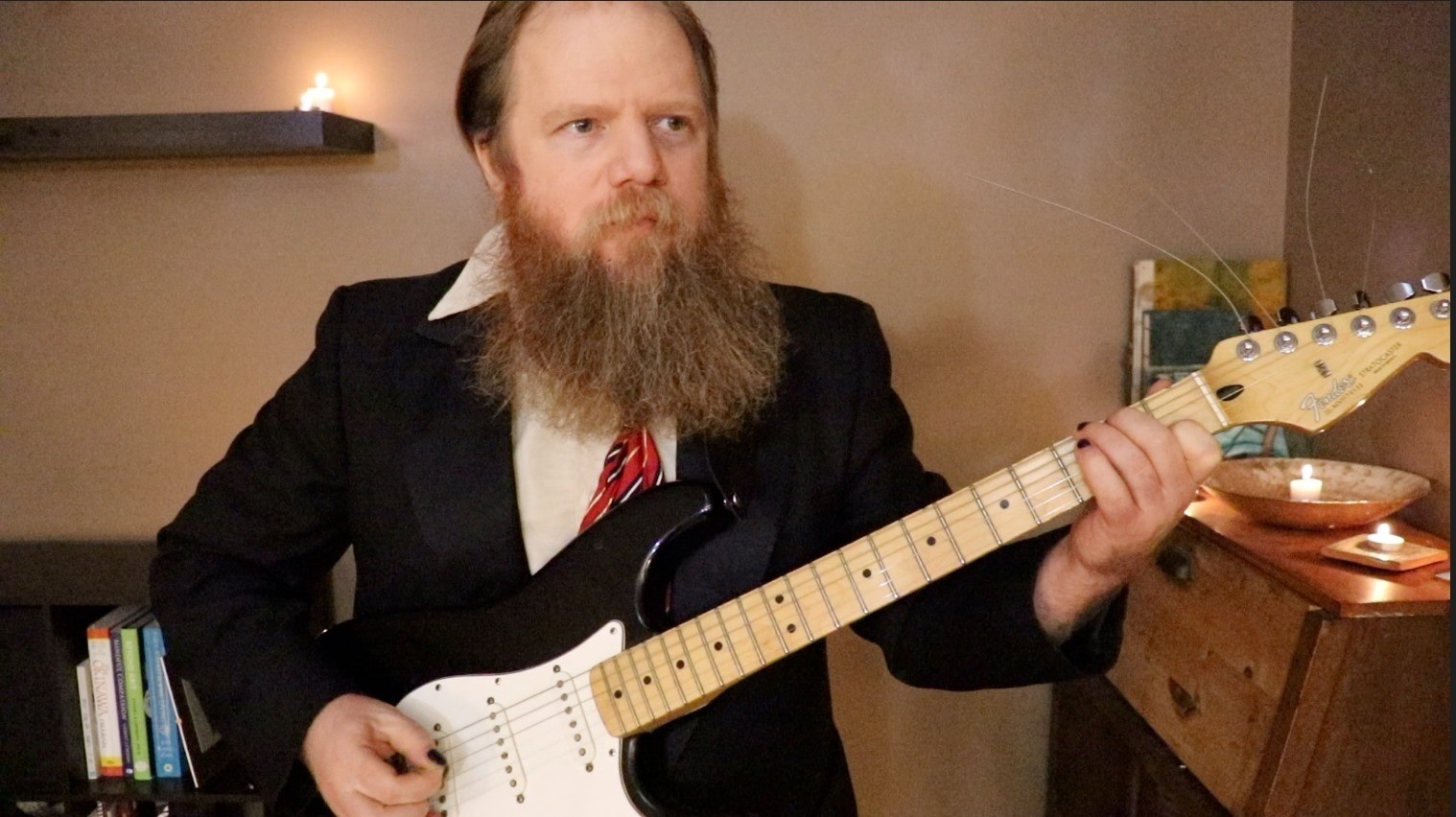
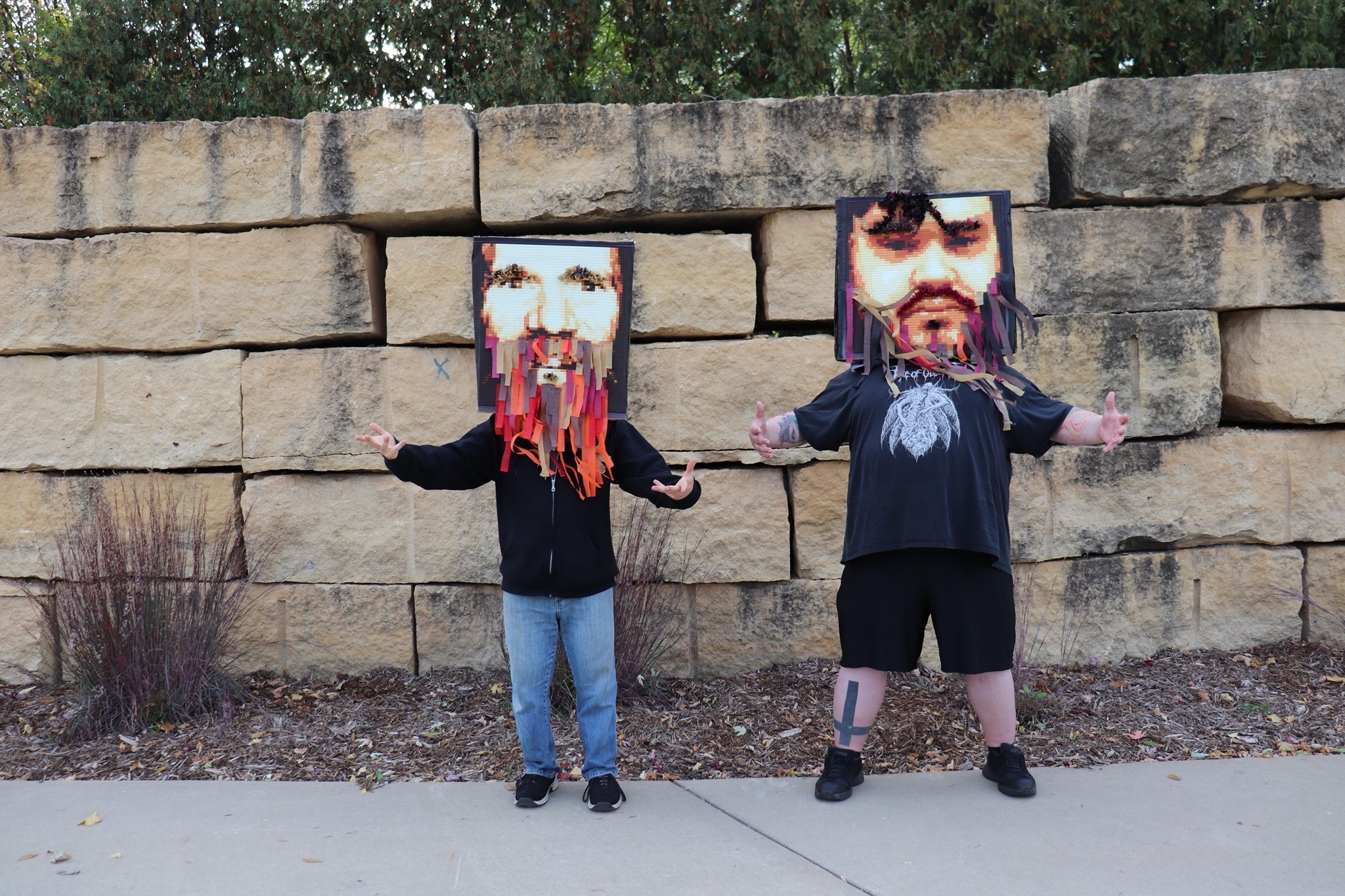
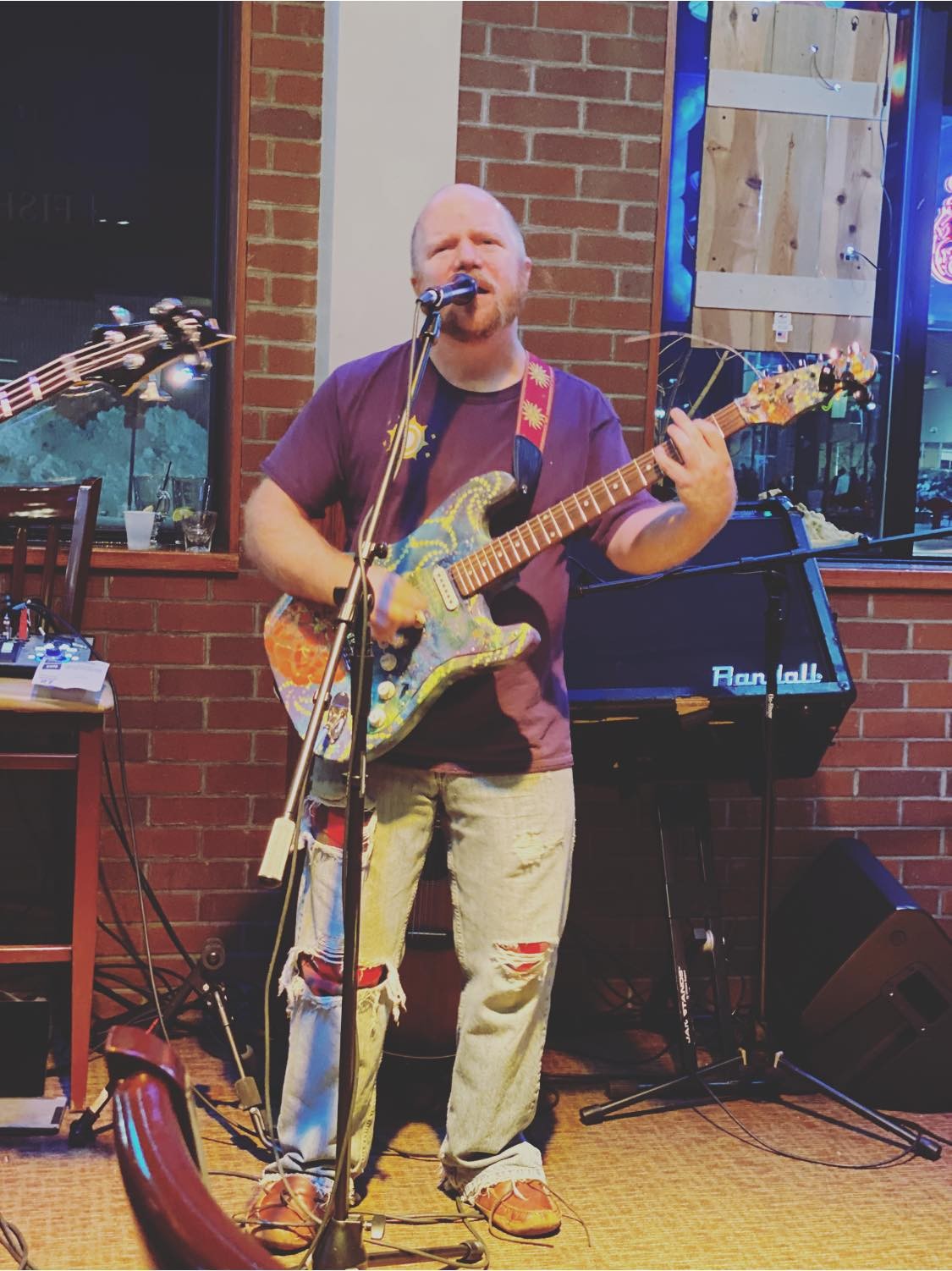
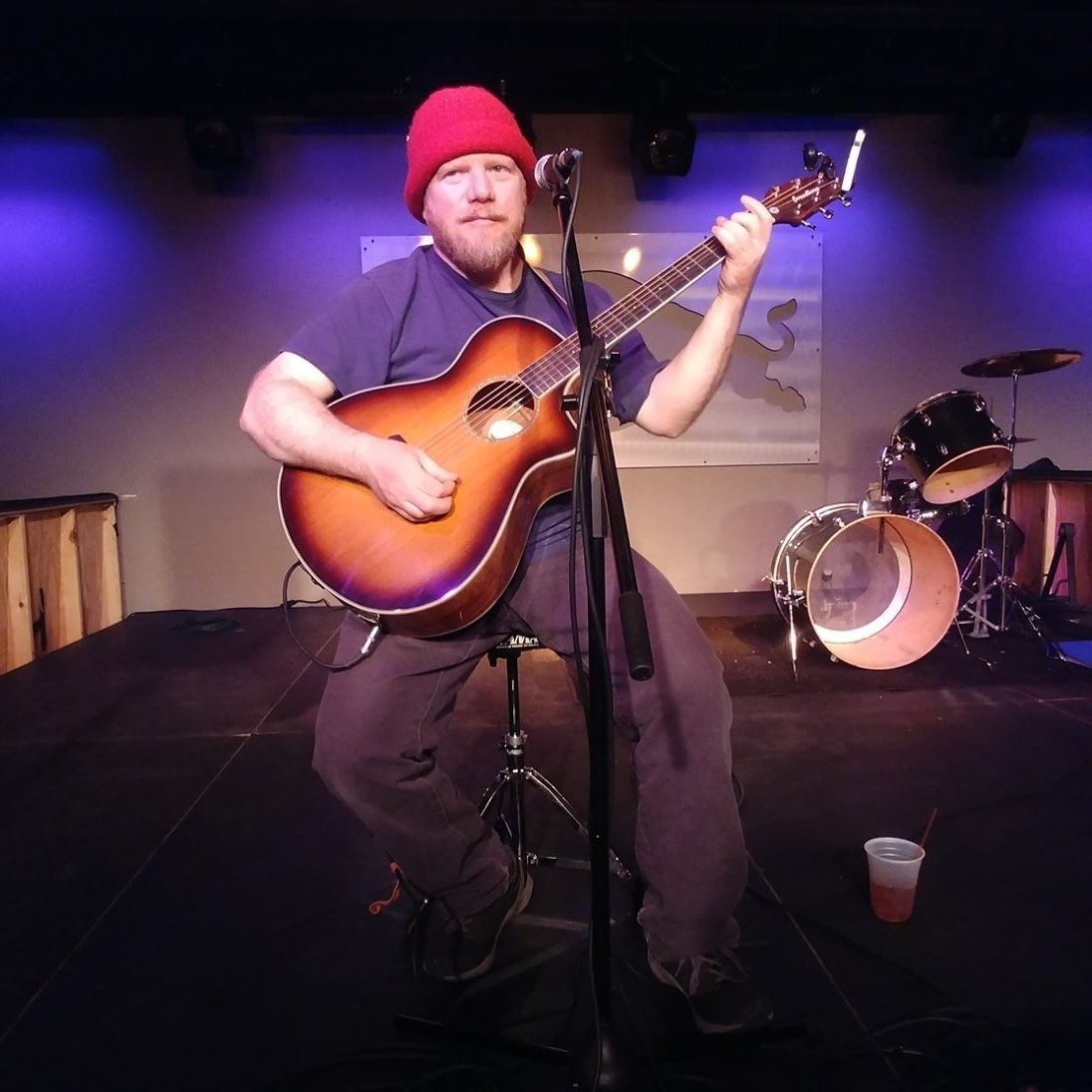
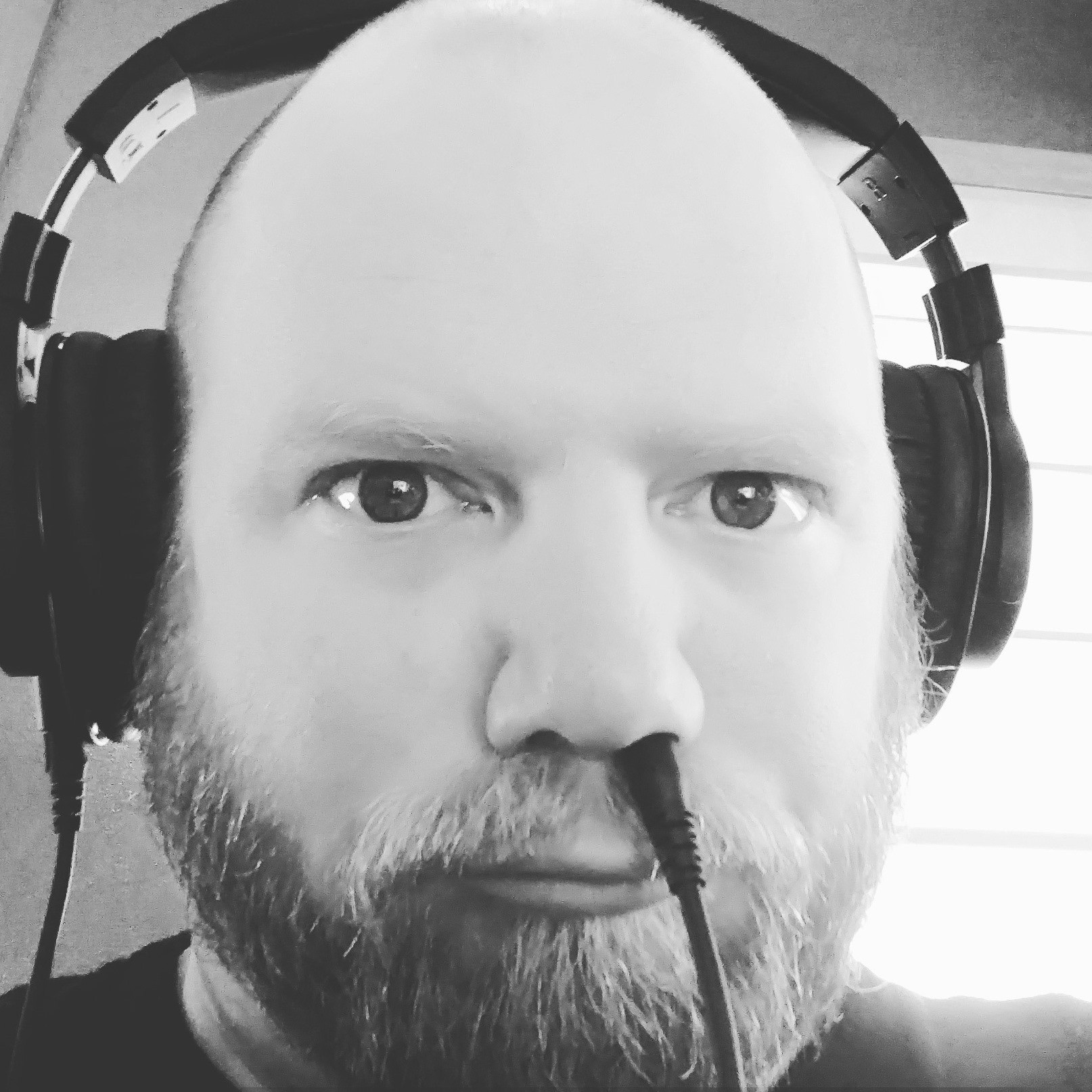
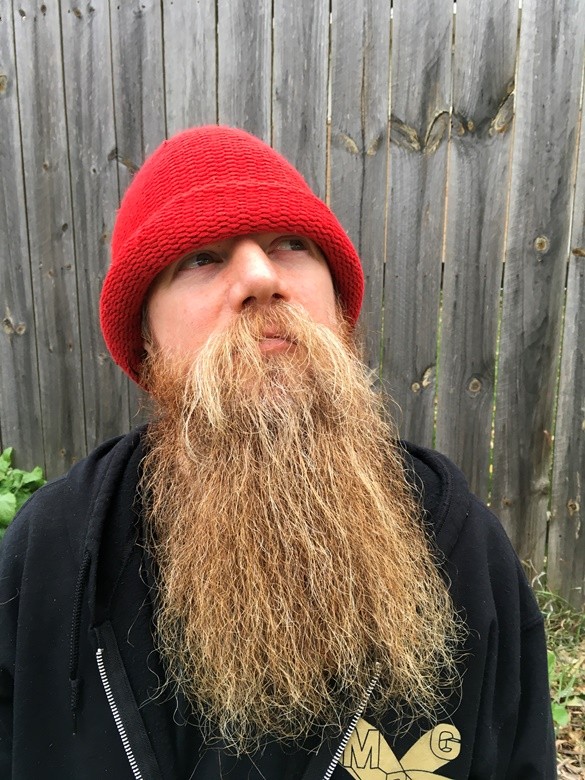
Image Credits
Casey Ek
Betty
Ana Damien
Elly Watson

